The Buenos Aires International Festival of Independent Film is an 11-day movie extravaganza showing some of the independent cinema from around the world in theaters across the city.

Celebrating its 25th year, the festival, known by its Spanish acronym BAFICI, aims to showcase the planet’s most provocative, bizarre and touching independent films of every genre and highlight Argentina’s own film industry.
Hosted by Buenos Aires’ Culture Department the festival started out strong in 1999 with international guests including Francis Ford Coppola, Paul Morrisey and Todd Hanyes.
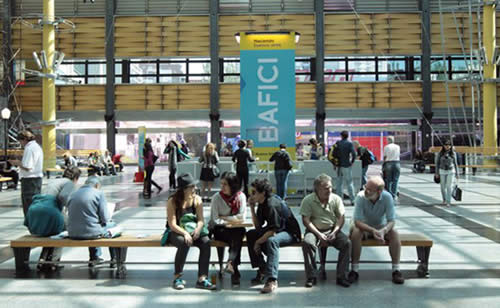
Today, BAFICI is no longer one of the world’s largest independent film festivals, but it is among the largest in Latin America.
The festival always has a heavy representation of local productions and has served as an excellent promotion vehicle for independent Argentine films.
Argentina leads South American cinema in terms of international award-winning productions and is second only to Mexico in terms of quantity of films produced.
Despite the artistic output, the country lags behind emerging film industries such as Colombia in terms of revenue, but this is mainly due to Argentina’s relatively low movie ticket prices (including at BAFiCI).
Argentina’s ‘Golden Age’ of cinema was from the late 1930s through the 1940s.
Films from that era such as ‘El Mercado de Abasto‘ are slower placed than today’s films and a fun way for language learners to pick up some Argentinismos.
Unfortunately, a series of repressive governments in many of the intervening decades forced some directors into exile and others to pivot to uncontroversial topics and slapstick comedies.
After the fall of the last military dictatorship in 1983, filmmakers returned to Argentina or reentered the industry.
Many were eager to reveal the horrors of totalitarianism by exploring deeply personal stories placed within a wider socio-political context.
The Official Story won ‘Best Foreign Film’ award at the Oscars in 1985.
Since the emergence of the 1990s ‘new cinema’ movement, the national film industry has created an idiosyncratic Argentinean style, heavily focused on dramatic plots and character sketches, often using natural lighting and barebones movie sets.
The 2009 Academy Award winner, ‘The Secret in Their Eyes‘ was Argentina’s greatest breakout on the world stage in this generation, increasing interest in Argentine cinema abroad.
The 20th (2018) edition of the BAFICI also featured the debut hit, ‘El Silencio es un Cuerpo Que Cae‘ (Silence is a Falling Body), which won the Netflix Award for ‘Best First Work.’
The 2022 film, ‘Argentina 1985′ is another historical drama about the prosecution of the Military Dictatorship.
It won a Golden Globe for Best Foreign Language Film and an Academy Award for Best International Feature Film.
Changes to BAFICI
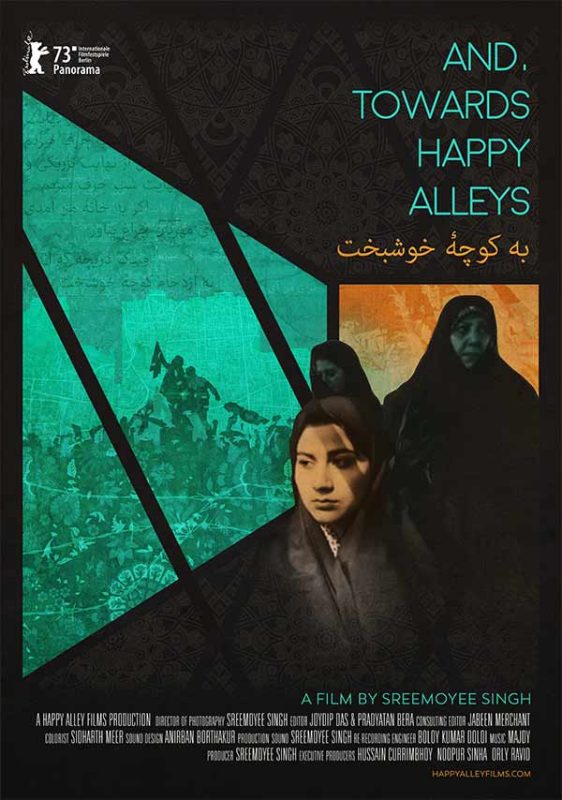
This year’s BAFICI continues with tweaks implemented after a few bumpy years.
The festival directors aim to bring film back to the streets, primarily Buenos Aires’ answer to NYC’s Broadway, Corrientes Avenue.
Just like in 2022, the epicenter of the festival will be around Corrientes — a street famous not just for its theater but also for its abundant bookstores and old-school pizza joints.
Two of the six venues for this edition are El Gaumont and Monumental Theaters.
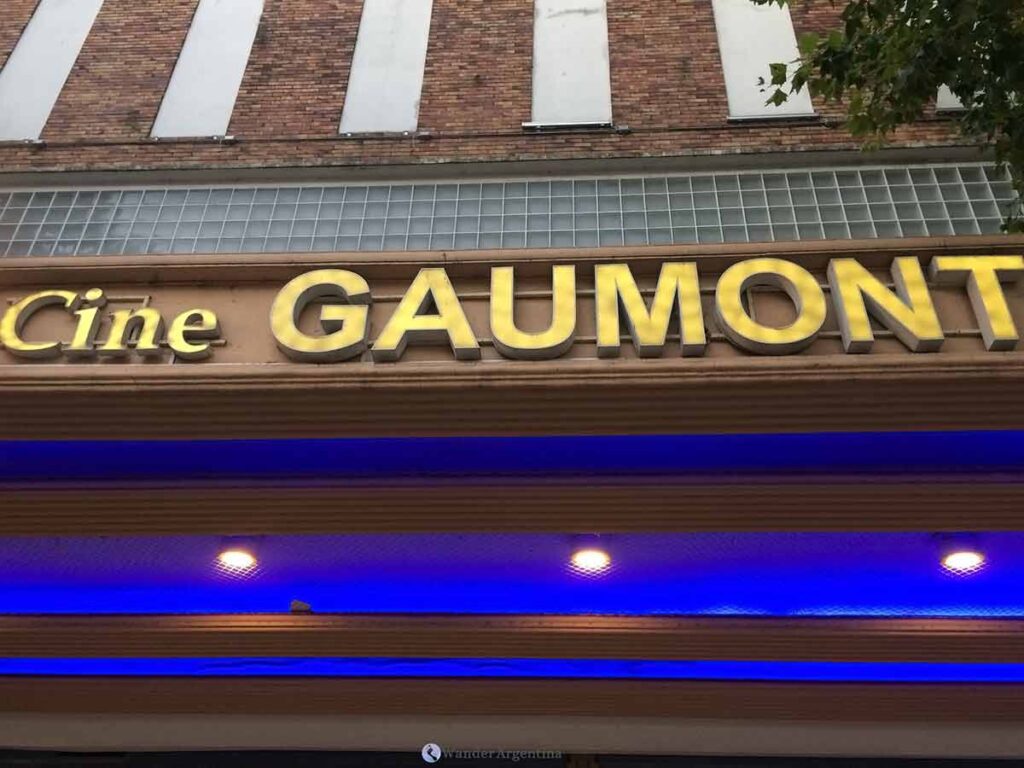
El Centro Cultural San Martín is again hosting films and will be hosting a large part of the programming.
Also along Corrientes Avenue, visitors can also find Cine Lorca, the Alliance Francaise, Teatro San Martin, Cine Cosmos, and the Arthaus Cultural Center (at Bartolome Mitre 400).
Theaters in wealthier neighborhoods such as Belgrano and Recoleta are out.
The Belgrano Multiplex is not participating this year and neither is El Museo de Bellas Artes in Recoleta.
In 2019, the festival was extended one day, from eleven days to twelve days, and promoted 37 viewing locations around the city, including underprivileged neighborhoods such as the Villa 31 slum.
“With less enclosed theaters and more contact with the street, the neighborhood and the neighbors, BAFICI offers the experience of watching a variety of films with each other and in the community, presenting a diverse national and international program,” a press release said at the time.
Local film critics such as Diego Batlle pointed out that there was actually a reduction in the number of actual theaters — from 20 in 2018, to 12 in 2019 because many locations were cultural centers showing projections.
Festival organizer Javier Porta Fouz was also criticized because American filmmaker, Brian de Palma was supposed to be the featured guest in 2019, but was ultimately unable to appear.
During the pandemic, the festival further suffered along with the rest of the world.
In 2022 the festival that was once two weeks or more was reduced to a duration of eleven days once again and has obviously crunched their marketing budget, with a downgrade in the festival’s website and less marketing.
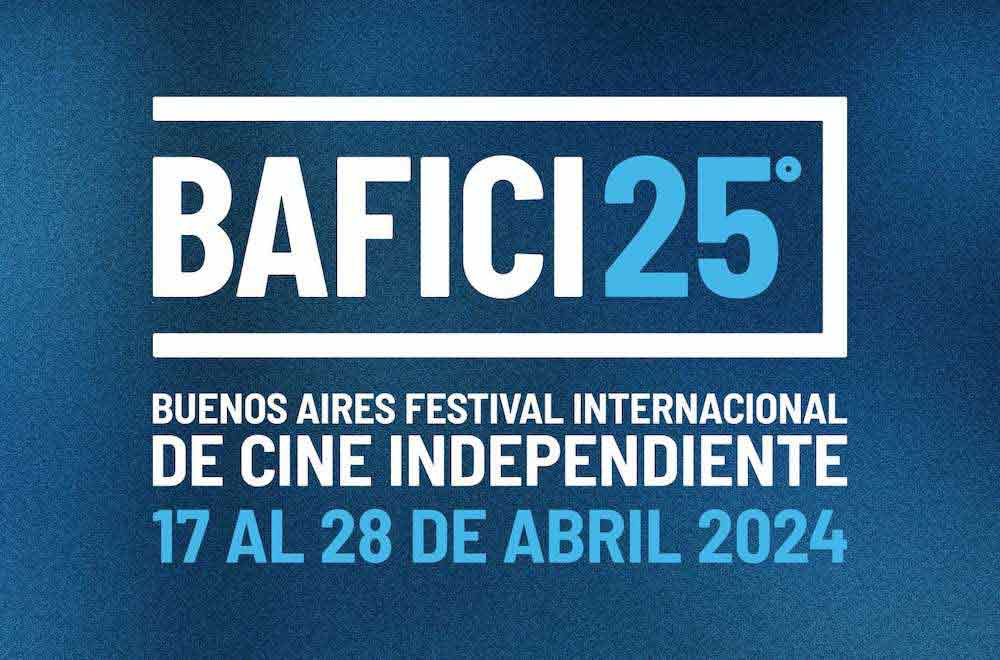
⇒ Check out our curated list of city tours and day trips
⇒ Don’t miss a tango show while in Buenos Aires
⇒ Book safe airport transfer and reserve your accommodation online
INCAA Under Attack: Milei Takes His Chainsaw the National Film Institute
In 2024, shortly before the commencement of BAFICI #25, Argentina’s new administration, led by Javier Milei with his emblematic chainsaw, cracked down on vast budgets across the country’s institutions, targeting administrative costs, public sector employment, and social programs, including those supporting the cultural sector.
The National Institute of Cinema and Audiovisual Arts (INCAA) was one of the main targets in the realm of culture.
INCAA is the government agency responsible for regulating, promoting, developing, and the film and audiovisual arts industry in Argentina.
The institute provides incentives and financial support to underfunded filmmakers and is one of the few cultural institutes that generates revenue, with a 400% return on their investments in audiovisual creation.
This is largely financed through ticket sales: even though prices are relatively low for movie tickets thanks to the 1994 ‘Cinema Law,’ 10% of every ticket sold in the country goes back to INCAA.
But Milei’s budget cut resulted in an immediate 90 suspension on financing new films.
“They are looking to give the film industry to the corporations,” Ingrid Urratia, representative of the State Workers Association at the Film Institute told radio AM750 (link in Spanish).
“It’s delivering on a silver platter what’s left of our sovereignty in the audiovisual industry.”
Critics of INCAA say it favors ideologically-aligned or experimental films over more commercially viable projects that could help build a more sustainable film industry in Argentina.
The institute is also considered a large bureaucracy infiltrated by Argentina’s emblematic ‘ñoquis‘ draining budgets without contributing anything meaningful to the growth of the film industry.
2024’s BAFICI was largely planned before the budget cuts, but its future is uncertain.
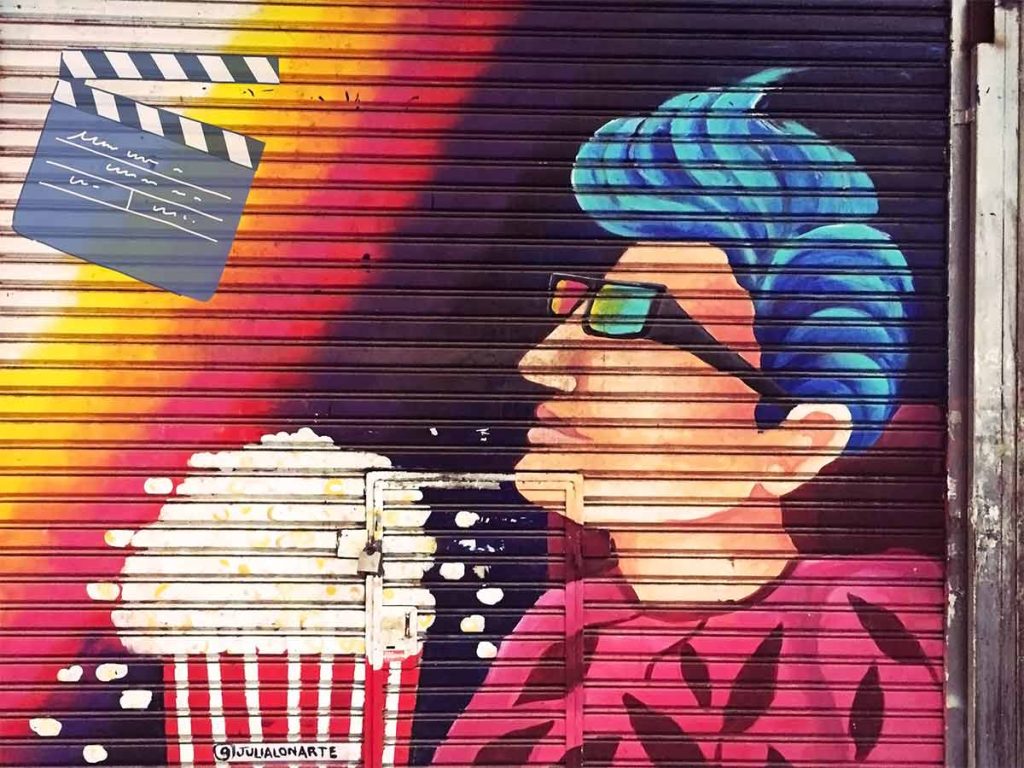
BAFICI Categories and Awards
For those who don’t speak Spanish, the film festival offers an opportunity to see independent Latin American films in the theater with English subtitles.
Non-English films are subtitled in Spanish, and in recent years all but the most obscure films in languages other than Spanish also feature English subtitles.
The festival provides the chance to talk with producers, directors and actors about their films, especially in questions and answer sessions that take place after selected screenings.
Awards have been streamlined and are now handed out in the following categories: Best Feature Film, Best Director, Best Actress, Best Actor and Best Script.
The Argentine feature film competition and short film competition have separate awards for the first two categories.
Filmgoers are invited to vote on films they see for the People’s Choice Award.
Other awards include I.Sat’s ‘Film of The Future’ award, Best Children’s Film and a UNICEF human rights award.
BAFICITO
Films at BAFICI are for those 18 and over, but kids aren’t excluded and it has a section dedicated to children and young adults.
Since 2009, the BAFICITO category of the festival has offered films for children and families.
Baficito features animated films, stop motion or live-action characters to surprise children and adults who are kids at heart.
2024 BAFICITO films:
Argentina
- Avel (Daniel Marín, 2024, 8′)
- My Life Story (Graciela García Romero, 2024, 9′)
- The Time of the Earth, Native Histories (Bea R. Blankenhorst, 2024, 11′)
- Another Skin (Nicolás Ivaldi, 2024, 15′)
Canada
- The Girl with the Red Beret (Janet Perlman, 2023, 5′)
Finland
- Snot and Splash (Teemu Nikki, 2023, 88′)
France
- Le Grand Saut (Martina Doll, Anaïs Dos, Coline Reverbel, Kenzo Talma, Edgard Vernier, Lisa Vlaine, 2023, 8′)
- Linda veut du poulet! (Chiara Malta, Sebastien Laudenbach, 2023, 76′)
- Nina et le secret du hérisson (Alain Gagnol, Jean-Loup Felicioli, 2023, 78′)
Netherlands
- Fox & Hare Save the Forest (Mascha Halberstad, 2024, 71′)
Check out our list of some of the best Argentine movies online ➡
Selecting Films at the Festival
Traditionally the city’s film students and other cinephiles dedicate their lives to seeing as many films as possible during BAFICI.
You’d see them hanging around the theater all day with short breaks to visit local eateries and cafés, and hanging around the main theaters to hobnob with festival participants and other film-goers.
In the five years before the pandemic, BAFICI saw a huge increase in participation.
Tickets for the official selections would sell out quickly, although the hardcore filmgoers have diminished in numbers with the festival’s changes in recent years.
No matter how dedicated, movie-goers can’t see it all, and the theaters were previously spread out over the city.
Now that the film locations are more concentrated around the Congreso neighborhood and Corrientes Avenue, maybe the cinephile spirit will return.
For those visiting here, it is a good chance to see local films and discover why Argentina’s films are so beloved.
Those living here may want to skip the local films, as you can see them later on in local theaters (although not with English subtitles as at BAFICI!).
The festival provides a chance to see some classic films in the theater, with this year’s retro films including greats such as ‘After Hours’ by Martin Scorsese and ‘Paris, Texas’ by Wim Wenders.
Intriguing Picks of Bafici Films 2024:
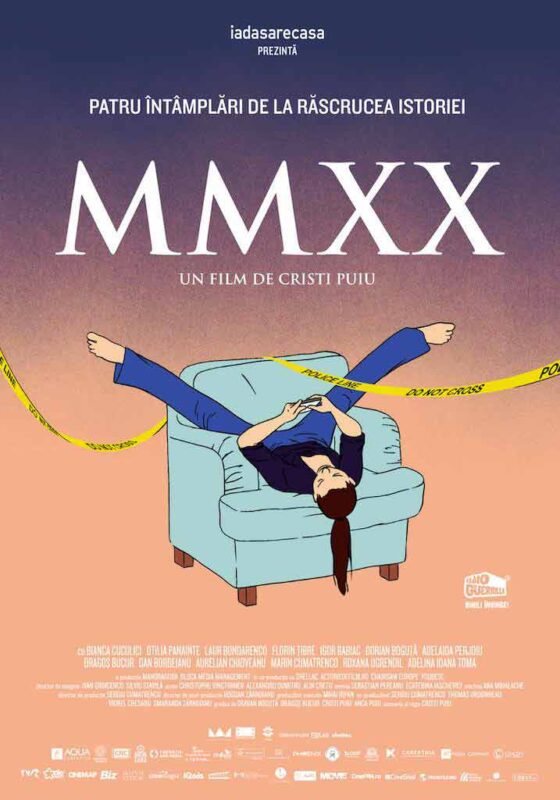
• Tedious Days and Nights by Guo Zhenming.
“Poet Zeng Dekuang returns to the former industrial town of Coal Dam after 30 years of wandering to find the place in disrepair — much like the promise of his youth that has dimmed in middle age.
“Rather than resist time’s decay, Zeng and his old friends drift into it with abandon and return to their basest of impulses, sometimes with comedic failure, but mostly in drunkenness,” says the Singapore International Film Festival of Tedious Days and Nights,
Zhenming had his passport destroyed by Chinese authorities last year, according to Variety, resulting in him missing the international debut of his first feature-length film.
It wasn’t the first time he ran into trouble with the Chinese government, not the least because the film weaves the Tiananmen Square Massacre into the storyline.
He’s been detained for two weeks and deemed ‘a threat to national political security’ — the kind of stifling of freedom that many Argentines who lived through the last dictatorship can understand.
• ‘Comme Le Feu‘ is translated as ‘Who By Fire‘ in the English title, referencing Leonard Cohen’s song of the same name.
The film is a sensitive coming-of-age story by Philippe Lesage, the Quebecois director of ‘Copenhague: A Love Story;’ ‘The Demons’ (Les Démons); and ‘Genesis’ (Genèse).
A 17-year-old boy joins his best friend Max’s family for a visit to a secluded mansion in the forest. He has high hopes for the weekend: he idolizes Max’s successful director father and harbors a secret crush on Max’s older sister.
The film reminds viewers how expectations can go sideways in the most surprising ways.
• ‘A Traveler’s Needs‘ (South Korea/2024), directed by Hong Sangsoo. Winner of the Silver Bear Grand Jury Prize, the second most important award at the Berlin Film Festival.
The plot revolves around a foreign woman living in Korea facing financial struggle who gives private French lessons and relies on makgeolli (rice wine) to soothe loneliness.
The film weaves in themes many travelers and digital nomads can relate to: life far from home, cultural exchange and personal growth.
• ‘MMXX‘ (2020) Romanian filmmaker Cristi Puiu is credited with starting Romania’s ‘New Wave’ movement in film with the low-budget, ‘Stuff and Dough’ in 2001.
His biggest hits since was ‘The Death of Mr. Lăzărescu’ a dark comedy that was a festival favorite, and which the New York Times called the ‘Best Film of the 21st Century So Far’ and 2016’s ‘SieraNevada.’
MMXX is four separate stories, not all related, with 2020 and the pandemic as the main protagonists.

Buenos Aires Festival Internacional de Cine Independiente 2024
April 17—28, 2024
• Cost: free—$1,500 for the general public and $1,200 for students and retirees
Purchasing Tickets to the Buenos Aires International Independent Film Festival
Advance sales of tickets will begin this Tuesday, April 9th, at 10 a.m.
Film enthusiasts often mark the date of sales to purchase tickets before they sell out.
A handful of tickets are usually reserved for the day of the show, to be purchased at the theater.
Make sure to show up early!
Free events are first-come, first-serve until the venue is full.
Check the day-by-day list of events and films on BAFICI’s official webpage.
Tickets & Prices
- This edition will feature new films from directors Lav Diaz, Christian Petzold, Hong Sangsoo, Paul Schrader and Ira Sachs among others.
- More than 250 films will be exhibited with the cinemas in downtown Buenos Aires as the main axis.
- Entrance fee for films is AR$1500 (about US$1.50).
- For retirees, students and kids films the entrance is AR$200 (U.S. $0.20)
Tickets can be purchased on the website or in person at the following box office locations from April 9:
Cacodelphia – 📍 Av. Pres. Roque Sáenz Peña 1150
Cinépolis, Plaza Houssay – 📍 Av. Córdoba 2135
El Cultural San Martín – 📍Sarmiento 1551
Espacio INCAA Cine Gaumont – 📍Av. Rivadavia 1635
Teatro San Martín – 📍Av. Corrientes 1530
Film & Event Locations
Cacodelphia – 📍 Av. Pres. Roque Sáenz Peña 1150
Cinépolis, Plaza Houssay – 📍 Av. Córdoba 2135
El Cultural San Martín – 📍Sarmiento 1551
Espacio INCAA Cine Gaumont – 📍Av. Rivadavia 1635
Museo del Cine — 📍Agustín R. Caffarena 51
Teatro San Martín – 📍Av. Corrientes 1530
BAFICI Tips:
• Plan well and buy early to get tickets to the films you want to see
• If you buy online, don’t forget your I.D. when you go to pick up your tickets
• Don’t show up late for screenings: even though this is Argentina, where lateness is not too taboo, BAFICI is an exception: latecomers are turned away
• Snacks, sodas and beer are sold at most of the theaters
→ Read an interview with the director of BAFICI
